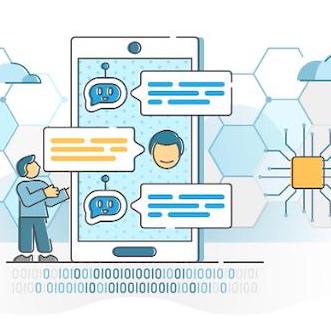KoBERT
Korean BERT pre-trained model (Korean BERT pre-trained cased)

KoBERT is a Korean-specialized BERT model developed by SK Telecom to overcome the limitations of Google’s publicly released BERT language model in processing Korean.
Project Information
- Developer: SK Telecom T-Brain (formerly SKT AI Center)
- License: Apache License 2.0
- GitHub: https://github.com/SKTBrain/KoBERT
Key Features
1. Korean Language Optimization
- Trained on millions of Korean sentences collected from Wikipedia and news sources
- Large-scale Korean language corpus utilization
- Reflects irregular Korean language variation characteristics
2. Efficient Tokenization
- Data-driven tokenization technique
- 27% fewer tokens with over 2.6% performance improvement compared to existing methods
- Subword segmentation tailored to Korean language characteristics
3. Distributed Learning Technology
- Ring-reduce based distributed learning technique
- Fast training of over a billion sentences across multiple machines
- Efficient processing of large-scale data
4. Multi-framework Support
- PyTorch
- TensorFlow
- ONNX
- MXNet
Applications
SK Telecom Internal Usage
- Call center chatbots - Improving customer service efficiency
- AI legal/patent search service - Document search and analysis
- Machine Reading Comprehension (MRC) - Extracting accurate answers from marketing materials
- Context-based document vector generation - Similar document recommendations (patent applications)
General Use Cases
- Sentiment Analysis
- Named Entity Recognition (NER)
- Text Classification
- Question Answering Systems
- Sentence Similarity Measurement
- Text Embedding Generation
Installation and Usage
Installation
pip install kobert-transformers
pip install transformers
Basic Usage
from kobert_transformers import get_tokenizer
from transformers import BertModel
# Load tokenizer and model
tokenizer = get_tokenizer()
model = BertModel.from_pretrained('skt/kobert-base-v1')
# Tokenize and generate embeddings
text = "Korean natural language processing is fascinating"
inputs = tokenizer(text, return_tensors='pt')
outputs = model(inputs)
# Extract sentence embedding
sentence_embedding = outputs.last_hidden_state[:, 0, :].squeeze()
print(sentence_embedding.shape) # torch.Size([768])
PyTorch Example
import torch
from kobert_transformers import get_kobert_model, get_tokenizer
# Load model and tokenizer
tokenizer = get_tokenizer()
model = get_kobert_model()
# Process text
text = "KoBERT is specialized in Korean language understanding."
encoded = tokenizer.encode_plus(
text,
add_special_tokens=True,
max_length=128,
padding='max_length',
return_attention_mask=True,
return_tensors='pt'
)
# Model inference
with torch.no_grad():
outputs = model(
input_ids=encoded['input_ids'],
attention_mask=encoded['attention_mask']
)
pooled_output = outputs[1] # [CLS] token output
print(pooled_output.shape) # torch.Size([1, 768])
Performance Benchmarks
| Task | Dataset | KoBERT Score | Baseline |
|---|---|---|---|
| Sentiment Analysis | NSMC | 89.63% | 87.42% |
| NER | Korean NER | 86.11% | 84.13% |
| Sentence Similarity | KorSTS | 81.59% | 77.92% |
| Question Answering | KorQuAD 1.0 | 52.81 (EM) | 48.42 |
Model Specifications
- Architecture: BERT-base
- Vocabulary Size: 8,002
- Hidden Size: 768
- Number of Layers: 12
- Number of Attention Heads: 12
- Intermediate Size: 3,072
- Max Sequence Length: 512
Community and Support
Technical Support
- GitHub Issues: https://github.com/SKTBrain/KoBERT/issues
- Active community contributions
- Continuous model updates
Related Projects
Using on Hugging Face
from transformers import AutoModel, AutoTokenizer
# Load directly from Hugging Face Hub
model_name = "skt/kobert-base-v1"
tokenizer = AutoTokenizer.from_pretrained(model_name)
model = AutoModel.from_pretrained(model_name)
# Inference
text = "KoBERT is the standard for Korean natural language processing"
inputs = tokenizer(text, return_tensors="pt")
outputs = model(inputs)
License
Apache License 2.0 - Commercial use allowed
Resources
- GitHub: https://github.com/SKTBrain/KoBERT
- Hugging Face: skt/kobert-base-v1
- Documentation: GitHub README
- Issues: GitHub Issues
Feedback
Was this page helpful?
Glad to hear it! Please tell us how we can improve.
Sorry to hear that. Please tell us how we can improve.